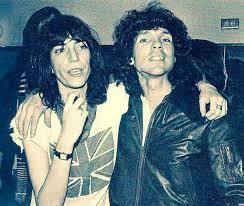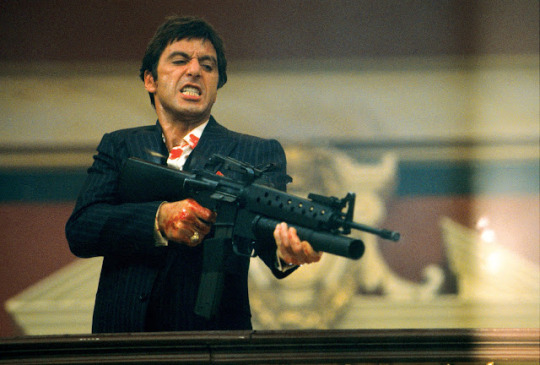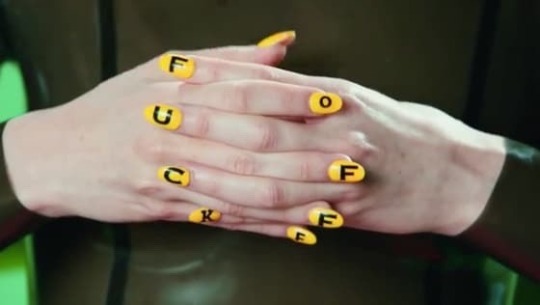#moroder have some shame
Explore tagged Tumblr posts
Audio
(Literary License Podcast)
Scarface (1932)
Scarface (also known as Scarface: The Shame of the Nation and The Shame of a Nation) is a 1932 American pre-Code gangster film directed by Howard Hawks and produced by Hawks and Howard Hughes. The screenplay, by Ben Hecht, is based loosely on the 1929 novel by Armitage Trail which was inspired by Al Capone. The film stars Paul Muni as Italian immigrant gangster Antonio "Tony" Camonte, a gangster who violently rises through the Chicago gangland, with a supporting cast that includes George Raft and Boris Karloff. Camonte's rise to power dovetails with his relentless pursuit of his boss's mistress while his own sister pursues his best hitman. In an overt tie to the life of Capone, one scene depicts a version of the Saint Valentine's Day Massacre. After Hughes purchased the rights to Trail's novel, Hughes quickly selected Hawks to direct and Hecht to write the film's screenplay. Beginning in January 1931, Hecht wrote the script over an eleven-day period. Scarface was produced before the introduction of the Production Code in 1934, which enforced regulations on film content. However, the Hays Code, a more lenient precursor, called for major alterations, including a prologue condemning gangsters, an alternate ending to more clearly reprehend Camonte, and the alternative title The Shame of a Nation. The censors believed the film glorified violence and crime. These changes delayed the film by a year, though some showings retained the original ending. Modern showings of the film have the original ending, though some DVD releases also include the alternate ending as a feature; these versions maintain the changes Hughes and Hawks were required to make for approval by the Hays Office. No completely unaltered version is known to exist.
Scarface (1983)
Scarface is a 1983 American crime drama film directed by Brian De Palma and written by Oliver Stone. Loosely based on the 1929 novel of the same name and serving as a loose remake of the 1932 film, it tells the story of Cuban refugee Tony Montana (Al Pacino), who arrives penniless in Miami during the Mariel boatlift and becomes a powerful and extremely homicidal drug lord. The film co-stars Steven Bauer, Michelle Pfeiffer, Mary Elizabeth Mastrantonio and Robert Loggia. De Palma dedicated this version of Scarface to the writers of the original film, Howard Hawks and Ben Hecht. Pacino became interested in a remake of the 1932 version after seeing it, and he and producer Martin Bregman began to develop it. Sidney Lumet was initially hired to direct the film but was replaced by De Palma, who hired Stone to write the script. Filming took place from November 1982 to May 1983, in Los Angeles and Miami. The film's soundtrack was composed by Giorgio Moroder. Scarface premiered in New York City on December 1, 1983, and was released on December 9, 1983, by Universal Pictures. The film grossed $45 million at the domestic box office and $66 million worldwide. Initial critical reception was negative due to its excessive violence, profanity, and graphic drug usage. Some Cuban expatriates in Miami objected to the film's portrayal of Cubans as criminals
Opening Credits; Introduction (.37); Background History (31.40); Scarface (1932) Film Trailer (34.25); The Original (37.00); Let's Rate (1:18.47); Amazing Design Advertisement (1:23.06); Introducing a Remake (1:24.18); Scarface (1983) Film Trailer (1:26.21); The Remake (1:29.35); How Many Stars (2:32.14); End Credits (2:49.03); Closing Credits (2:50.36)
Opening Credits– Epidemic Sound – copyright 2021. All rights reserved
Closing Credits: Gangsta Paradise by Coolio featuring LV. Taken from the album Gangsta Paradise, I am LV. Copyright 1995 Tommy Boy/Warner Brothers/MCA Records
Original Music copyrighted 2020 Dan Hughes Music and the Literary License Podcast.
All rights reserved. Used with Kind Permission.
All songs available through Amazon Music.
3 notes
·
View notes
Photo





Man on the Roof (Mannen pa taket) + text posts
I have a ridiculous ship in this particular screen adaptation, and it shows. Good day.
#martin beck series#mannen pa taket#man on the roof#morodermakes#lennart kollberg#gunvald larsson#moroder have some shame
0 notes
Note
Hi Flans! I was curious- I think I’ve heard either you or JL mention that you were Sparks fans. If so, how did you get into them? Did you ever see the Sparks Brothers doc from last year? I feel like you guys and the Mael brothers are sort of kindred spirits in a way. Hope you’re doing well!
Greetings from my broken rib/messed up back day bed-SO yes as a young teenager I followed Sparks pretty closely. They were on tv pretty regularly, and had some label push behind them, but as you know from the movie-it was less that they broke through then they persevered (a laudable trait in any performer) They were part of a crowd of glam bands that had very legit songs and that were gender-bendy and arty. I dug a lot of it.
Later on I remember my pal Jimmy Mack introducing me and John to the Giorgio Moroder track "Number One Song in Heaven" which seemed like a brilliant combination of very authentic (and specific) early German disco and the Sparks sensibility. It seemed like some very savvy shape shifting on their part.
I saw this 1976 concert-in the "pre-punk" moment when Don Law was throwing together triple bills of unlikely weirdo bands bring to fill the Orpheum. I was so captivated by all my live music experiences, I would typically get to the venue early and often count how many people were actually in the room. This show was extremely badly attended-half full-so kind of a disaster for all. (A year later the Ramones, Talking Heads-playing what seemed to be their classic song set-and Eddie and the Hot Rods would be presented he same way and while it was a more successful turn out, it still wasn't sold out.) Reddy Teddy were a band I had already seen a few times at the Rat (probably with crowds of two or three dozen) They were a kind of a street-level straight ahead rock act-kind of an ersatz Aerosmith but they have some very good songs.

I saw this 1976 concert-in the "pre-punk" moment when Boston rock impresario Don Law was throwing together triple bills of unlikely weirdo bands in some abstract hope of filling the Orpheum Theater in Boston. I was so captivated by all my live music experiences then, I would typically get to the venue extremely early and often count how many people were actually in the room. This show was extremely badly attended-half full-so kind of a disaster for all. I am not sure if John L. was there but Jimmy definitely was. We had absolutely the shittiest tickets-front row but fully obstructed view directly in front of the PA stack-so we were just getting blown up by the sound, and couldn't see a thing. After about five minutes we moved to the empty "reserved" seats in the front row and just pretended our 15 and 16 year old behinds belonged in the industry seats. (Jimmy's actually already kind of did, but that's another story) I remember Russell Mael stood up on the piano when he sang White Women and it seemed kind of scary. Patti Smith, who I think I had seen previously but I an't remember where, was now far closer to the "Candy Slice" parody that Gilda Radner did on SNL. Not to drug-shame anybody but she was clearly totally high on something very real. In the fullness of time, it seems to me she was unmistakably on heroin. At one point she kind of crumpled on the stage in what anyone would describe as a full nod, and someone with her show picked here up and carried her of the stage. The band played on, and in a bit she rebounded-jumping on stage to announce that it had just been announce on the radio that Bob Marley had been shot. I have no idea about if that happened or not, but it was an interesting bit of theatrical misdirection-kind of changing the topic from her miniature drug event.
(A year later the Ramones, Talking Heads-playing what seemed to be their classic CBGB song set-and Eddie and the Hot Rods would be presented he same way and while it was a more successful turn out, it still wasn't sold out.) Reddy Teddy were a band I had already seen a few times at the Rat (probably with crowds of two or three dozen) They were a kind of a street-level straight ahead rock act-kind of an ersatz Aerosmith but they have some very good songs.
Later on I remember my pal Jimmy Mack introducing me and John to the Giorgio Moroder track "Number One Song in Heaven" which seemed like a brilliant combination of very authentic (and specific) early German disco and the Sparks sensibility. It seemed like some very savvy shape shifting on their part. They really committed to the idea.
66 notes
·
View notes
Text

Al Pacino in Scarface (Brian De Palma, 1983)
Cast: Al Pacino, Steven Bauer, Michelle Pfeiffer, Mary Elizabeth Mastrantonio, Robert Loggia, Miriam Colon, F. Murray Abraham, Paul Shenar, Harris Yulin. Screenplay: Oliver Stone, based on a screenplay by Ben Hecht, Seton I. Miller, John Lee Mahin, W.R. Burnett adapted from a novel by Armitage Trail. Cinematography: John A. Alonzo. Art direction: Edward Richardson. Film editing: Gerald B. Greenberg, David Ray. Music: Giorgio Moroder.
Brian De Palma's Scarface ends with a dedication of the film to Howard Hawks and Ben Hecht, the director and the author of the story for the 1932 Scarface. As well it might, for De Palma's film and Oliver Stone's screenplay follow the outlined action and many of the characters of the earlier film far more closely than many remakes do. Most of the major characters have counterparts in the 1932 film: the Italian Tony Camonte becomes the Cuban Tony Montana; the first Tony's best friend, Guino Rinaldo, becomes Manny Ribera; Tony's sister, Cesca, becomes Gina; his boss Johnny Lovo's mistress, Poppy, becomes Tony Montana's boss Frank Lopez's mistress, Elvira. Both Mama Camonte and Mama Montana are sternly disapproving presences, and the appropriate characters are bumped off in more or less the same sequence and circumstances as in the earlier film. Because of the relaxation of censorship, there's a little heightening of some subtext from the first film: Gina (Mary Elizabeth Mastrantonio) taunts Tony Montana (Al Pacino) with having incestuous feelings for her more explicitly than Cesca ever dares with Tony Camonte. And although the earlier film was thought to be excessively violent, the remake goes boldly where it didn't dare, starting with a chainsaw murder and ending with a veritable orgy of gunfire, including that of Tony's "little friend," a grenade launcher. The violence of De Palma's film first earned it an X rating, which was bargained down to an R after some suggested cuts -- although De Palma has claimed that he actually released the film without the cuts, and no one noticed. The remake's violence also turned off many of the critics, although it received a strong thumbs up from Roger Ebert. Since then, of course, the movie has become a cult classic, and more people have seen the remake than have ever seen the original. Which is a shame, because the original, despite some occasional slack pacing and the inevitable antique feeling that lingers in even pre-Production Code movies, is a genuine classic, while De Palma's version feels like a rather studied attempt to go over the top. Screenwriter Stone was never noted for subtlety, and while Al Pacino is one of the great movie actors, De Palma lets him venture into self-caricature, especially with what might be called his Cubanoid accent. On the other hand, Steven Bauer -- who was born in Cuba and sounds nothing like Pacino's Tony -- is a more appealing sidekick than George Raft was, and Michelle Pfeiffer, in one of her first major film roles, makes a good deal more of Elvira than Karen Morley did of Poppy, even though Pfeiffer is asked to do little more than look beautifully sullen and bored throughout the film. Scarface is at best a trash classic, a movie whose impact is stronger than one wants it to be.
2 notes
·
View notes
Photo

Album: Glory
Release Date: August 26, 2016
Another album cover, another Britney face shot. Aptly titled since it’s a close return to her former glory, at least musically and lyrically. It had been 5 years since her last top ten hit and a chart topping album (Femme Fatale for both). This album didn’t accomplish either, but everyone liked the sound much better!
She also met her current super hot young boyfriend on the set of one of the music videos off this album. Go look at his Instagram, I’ll wait. Rawr.
This is the third potential contender for Britney’s Holy Trinity.
Time for Britney to serve us greatness again!

Pretty Girls | 5 /10
*sigh* I don't hate this song, but it's not good. My boyfriend, however, LOVES this song. Mr. Rock Music Only would not stop singing it when it first came out. He called it a perfect bubblegum pop song so I'll just agree with him on this.
Also, this one wasn’t on Glory, thank god, but it was released during this era.
Tom's Diner | 8 /10
Fun fact: Britney never finished recording this cover with Giorgio Moroder. He gave interviews noting that she was probably busy. Let me show you what she was actually doing.

Yes, she was in Hawaii on vacation, far from the studio.
Another fun fact: She recently revealed that she forgot she covered it and she actually texted her manager saying this would be a fun song to cover.
Also not on this album but from this era.
Invitation | 7 /10
I don't know if this made the *best* album opener, but I really enjoy it regardless. That falsetto - yes ma'am! And the lyrics are so subtly sexy: Yes or no, but no maybes / Not gonna beg so don't make me 🎶 ... I'm wet.

Do You Wanna Come Over? | 6 /10
Even though I don't really like it, I have to admit it's catchy and, considering the Spotify numbers, the GP probably would've pushed this up the charts if it had been released as a proper single + video.

Make Me | 5 /10
I go back and forth on this song. When I haven't listened to it in a while, I'm convinced it's perfect, but a few more listens convinces me it's not. It definitely sets the mood for the album and what she was trying to achieve, but 1) G-Eazy does absolutely nothing for this song and didn't need to be there and 2) It's really hard to understand what she's singing. If you're going to release a single to the GP, a damn lead single, maybe make it a song that's easy for them to understand and sing along to.

Private Show | 5.5 /10
This had to grow on me. The chipmunk voice is a little grating. But it's fun! I love the way she says "work it, work it, boy watch me work it!"
Man On The Moon | 6 /10
Oooh, more bubblegum pop. I can't decide if I think this song is good or just corny af. Lyrics are pretty solid.
Just Luv Me | 7.5 /10
Should've been a single. Maybe not lead, but it's a better r&b-styled effort than Make Me is. Her voice sounds better on this one as well.
Clumsy | 5 /10
Oops! Ok, talk about basic club music lmao. But I LOVE how catchy it is! Probably shouldn't have been a teaser single, though ... it's not that strong of a song.

Slumber Party | 8 /10
THIS would've been better as the lead single than Make Me. But I also believe it’s a terrible second single. Also also this did not need a remix with Tinashe. Better promo would've propelled this further up the charts imo because that video is muy caliente. I love her deeper/half moaning vocals.
Peep the video to see her lick milk up in front of her man. Rawr.
Just Like Me | 6.5 /10
The lyrics aren't very convincing to me, but the slowed down chorus gives the song a little more depth. It's also sort of forgettable, though.
Love Me Down | 9 /10
One of the best tracks on the album tbh. The way she sings lo-lo-lo-lo-love me is instantly iconic and classic Brit. The half spoken/half sung nature is fucking flawless, too.
Hard To Forget Ya | 2 /10
It's not hard to forget this fucking song, though. The chorus sinks what could be a masterpiece. The verses are excellent!
What You Need | 7.5/10
In spite of my better senses, I do like this song. I'll always maintain that her voice is too thin to pull off what could be a masterpiece of a fucking song, but that doesn't stop it from being pretty damn good. The way she plays with the words when she sings is unmatched.
Better | 6.5 /10
It's good! But it sounds too much like Justin Bieber-style and not Britney Spears, the legend-style. You could put anyone on this song (JB, Demi Lovato, Selena Gomez, especially Selena Gomez) and it would work.
Change Your Mind | 10 /10
This is the best song on the album, bar none. Should've been a standard edition song AND a single. This is the lead single Britney needed. It capitalizes on some of the trends currently out there, but with a twist. A Britney twist.
Liar | 7 /10
This is probably the most radio friendly song on the album. I think the GP would've eaten it up, albeit it would've enjoyed a very temporary existence. But Spotify numbers don't lie ...
If I'm Dancing | 9 /10
I wish she would make a whole album of songs like this. It feels so transcendental and exotic, a sound Britney hasn't really explored before. I don't really know wtf the lyrics mean, but I'm still here for it.
Coupure Electrique | 8 /10
I was slightly disappointed when she announced there was a track called Blackout and then it turned out to be this. Don't get me wrong, it's a great song, but the French is ... nonsensical.
Mood Ring | 9 /10
If she wanted a moody first single, move this up to the standard edition and release it. The production, lyrics, everything about it puts Make Me to shame.
Slumber Party (ft. Tinashe) | 7 /10
Even though the song is essentially the same, I'm dropping a star from the original because Tinashe brought nothing to it. They need to stop trying to make Tinashe happen.
L E A K E D V I D E O
There have (so far) been no leaked songs from this era, but it had its own controversy in the form of a music video. Britney teased a video for the lead single Make Me, which is entirely different from the one we actually got. There’s a whole convoluted story behind that. Anyhoo, I’ll let you decide if it’s good or not (spoiler alert: it’s not), but this shit riled up the fandom.
youtube
God, G-Eazy makes me want to gag.
7 notes
·
View notes
Text
August 25, 2019
CLICK HERE for the August 25, 2019 playlist
1. Jules and the Polar Bears – “Shadows Break” (1978)
Group led by Jules Shear, who went on to write hits for Cyndi Lauper (“All Through the Night”) and The Bangles (“If She Knew What She Wants”). This is from their first record, Got No Breeding, a fantastic and smart record from start to finish.
2. Van Duren – “Grow Yourself Up” (1978)
A Memphis dude and Big Star affiliate. This is from his first album, which is still not available on Spotify, but luckily it’s also on the soundtrack to an upcoming documentary about Mr. Duren, which _is _on Spotify.
3. Sneaky Feelings – “Someone Else’s Eyes” (1983)
I honestly don’t know much about this band, just that they’re from New Zealand and were on Flying Nun, but to me they sound more like a UK power pop band than any of the other Flying Nun bands of the time.
4. Felt – “The Day the Rain Came Down” (1985)
The musical project of “Lawrence,” who said he was going to start a band, release 10 albums and 10 singles, and then break up, and did exactly that. This is from Felt’s fourth album, Ignite the Seven Cannons and Set Sail for the Sun, when the band still featured the beautiful guitar stylings of Maurice Deebank, on full display on this track. Also, it really does end that abruptly.
5. The Three O’Clock – “When Lightning Strikes” (1983)
One of the pillars of LA’s “Paisley Underground” scene in the 80’s (which, in my mind, also inclues The Dream Syndicate, Rain Parade, and the Bangles). Later, serendipitously, signed to Prince’s Paisley Park record label and gave a young Jason Falkner his start. This is from their first record.
6. The Boys – “Baby It’s You” (1979)
Included on Titan: It’s All Pop, a compilation put out by the wonderful Numero Group consisting of music released by the Kansas City regional power-pop label Titan in the late 70’s/early 80’s. Kansas City was actually a step up for The Boys, who hailed from the music mecca of Lincoln, Nebraska.
7. Magazine – “Rhythm of Cruelty (7” Version)” (1979)
Magazine frontman Howard Devoto was a founding member of the Buzzcocks, but left before they ever released an album (he does have a co-songwriting credit on “Orgasm Addict”—nothing to sneeze at). For some reason his brief Buzzcocks membership is always one of the first things mentioned about him (and I’m clearly part of the problem), but Magazine put out four really great nervy, new-wavey albums of their own. Bassist Barry Adamson went on to a stint in Nick Cave and the Bad Seeds, soundtracking David Lynch films, and other cool stuff.
8. Gong – “Love is How Y Make It” (1973)
For the most part, I’m not sure I can hang with Gong, who are about as goofy as an art/prog-rock band from the 70’s can get. But I’ve loved this song ever since Four Tet put it on a mix back in 2006. And it serves as a nice palette cleanser here to move out of the power-pop new wave mode of the first songs into some other territory.
9. Was (Not Was) – “Wheel Me Out (Long Version” (1980)
Before he was producing 90’s career-renaissance albums for The Rolling Stones and Bonnie Raitt, and before he became president of Blue Note Records, Don Was was making weirdo funk-disco music in Detroit.
10. The B-52’s – “Ain’t it a Shame” (1986)
Was turned onto this wonderful song, from the otherwise little-talked-about 1986 album Bouncing Off the Satellites, by my friend and former bandmate Dr. Nathan DeYonker, who always wanted our band Reading to cover it. I think Sinead O’Connor covered it at one point—but I’ve never heard it.
11. Nite Jewel – “It Goes Through Your Head” (2011)
The recording project of LA-resident Ramona Gonzalez, whose music to me often captures the emotional essence of late-80’s/early 90’s R&B in a more lo-fi package. All her albums are great, but this was a one-off single from a few years ago.
12. Donna Summer – “Lucky” (1979)
I picked up a copy of Bad Girls recently on the cheap, and this Moroder-produced synth-pop number from Side Four caught my ear.
13. Shura – “religion (you can lay your hands on me) – edit” (2019)
I know next to nothing about Shura, but I heard this song recently and really dug not only the wonderful melodies and production, but also the disarming innocence of the song’s steamy focus on “kissing.”
14. Richenel – “Perfect Stranger” (1982)
Seems like I saved the songs I know the least about for the end. Music From Memory, a great Dutch record label that I’ve been following for a couple of years, has put out a couple of EP’s worth of stuff by this guy, a Dutch singer who later put out music on 4AD and some major labels.
15. Rare Silk – “Storm” (1985)
I really know nothing about this band, but I was surprised to find out they were from BOULDER, COLORADO. Given that, to me, this song sounds like it wasn’t even made on this planet, Boulder makes more sense than a lot of places. A reissue label I love out of the UK, Be With Records, is putting out a 10” of this song later this year.
1 note
·
View note
Text
St. Vincent Is Telling You Everything
“I told you more than I would tell my own mother.”

September 10, 2017, 10:34 a.m. By Laura Snapes | BuzzFeed Contributor Reporting From New York, New York Annie Clark was reconfiguring some older material for her upcoming tour when she realized how alien it felt to play it. She could adapt the arrangements to her harsher new sound — the sleazy, acid aesthetic of Masseduction, her upcoming fifth solo record as St. Vincent — but the writing’s proggy complexity was cockblocking the emotion. “In so many ways, I thought I was being completely transparent and brave in every record, only to realize that they are very oblique,” Clark told BuzzFeed News. She cackled and looked delighted. “Who knew! I had no idea.” Clark is much too self-aware for this to be completely true. But the difference between her polite, guarded Texan past and confrontational present is colossal. When I first interviewed Clark in 2009, she nervously pressed her pendant against her lips and face, leaving a red lipstick pox on her insane cheekbones. By 2014’s St. Vincent, Clark’s public persona would be imperious. But these days, she’s a playful freak who revels in showing the tightness of her grip, a disposition aided by long, straight eyebrows that dance like Memphis squiggles. In late July, she appeared in the lobby of New York City’s Marlton Hotel, her temporary home during the making of Masseduction. She had come from pilates — which she likes because it makes her sing better and “come a lot harder” — and disappeared to change out of her leopard-print gym shorts. When I mentioned a recent paparazzi photo of her looking like a sexy detective in another skintight leopard-patterned getup, she asked twice, with predatory delight, whether I’d looked at her camel toe. (No! Okay, maybe!) The only time her control slipped was when the hotel’s stereo started playing “Who,” a knotty song from the album she made with David Byrne, and she shriveled like a salted snail at hearing her own voice. Self-possession like hers is often interpreted as pretentious, or pathological. But over time, the confidence that the younger, anxious Clark had to fake has become bracingly real. You can hear it in Masseduction, a record of pop fluidity and queer possibility. It’s the best thing she’s ever done, and there are no bad St. Vincent records. It’s partly harsh, heady, erotic synth-pop visions steered by her diamond-sharp guitar, and while Clark has written plenty of ballads, there have never been any as brutal and gorgeous as these. Its lurch between apocalypse and ecstasy mirrors how it felt to be kicked in the head by the past couple years. In a way, Clark was right about the obscurity of her past work, filled with archetypes and distanced observations — emotions through a stained-glass window. If not a clear pane, then Masseduction is at least a peep show on heartache, fucking, addiction, destitution, and suicide. And her relatively new life as a very public figure, thanks to relationships with Cara Delevingne and Kristen Stewart, gives it an extra frisson. Tabloids will rush to find the former, the famed British supermodel, on an album littered with wasted bodies, especially on “Young Lover,” where Clark finds someone overdosed in the bathtub. She recounts the night with terror but also arrestingly ugly indignation. “Oh, so what / Your mother did a number / So I get gloves of rubber / To clean up the spill,” she sneers. “Scenario has to rhyme, babe,” is all Clark said about its veracity. She was bemused at being asked to explain the lyrics. To her, this record is butt-naked. “I told you everything,” she stressed. “I told you more than I would tell my own mother. It’s right there.”

Annie Clark Nedda Afsari Masseduction started out with three tenets: It would feature programmed beats and pedal steel guitar, and examine power and seduction. “What does power look like, who wields it, how do they wield it — emotionally, sexually, financially?” Clark ticked off her fingers. The album was properly born over a creative first-date dinner with Jack Antonoff, the Bleachers frontman who also recently produced and wrote with Lorde and Taylor Swift. Clark was looking for a teammate; they told each other everything that was going wrong in their lives and decided that total oblivion was the only way out of their heads. “It wasn’t, ‘Hey, let’s make a record together, that’ll be fun,’” Antonoff told me. “It was, ‘Let’s absolutely go all the way and find the absolute best thing that exists here,’ which is really the only way to work on things.” That grit is Clark’s MO. Until recently, she claimed to have taken approximately 36 hours off in between returning from touring 2011’s Strange Mercy and starting work on 2014’s St. Vincent. The concerts for the latter were bonkers, starting the run as avant-garde, meticulously choreographed deconstructions of a traditional rock show, and ending it with exorcisms that entailed Clark crumpling down a 10-foot pink plywood pyramid like a drunken horse. She often stole objects from the crowd: a pair of crutches, someone’s dinner. The spectacle of her murdering the thing she’d trained for was addictive.

St. Vincent during the 2015 Coachella Valley Music & Arts Festival. Frazer Harrison / Getty Images “Touring became a blood sport for me. I mean, I was born with a whip anyway, and touring became this self-flagellating exercise,” she said, clenching her jaw and lashing each shoulder with an imaginary strap. “And I was seeking that kind of physical exhaustion; I was seeking the pain.” She doesn’t know why, and she’s okay not knowing why, though eventually she did accept that her relationship to touring was a form of delirium. On the new album’s “Sugarboy,” a dystopian, post-Moroder disco banger, she describes herself as a “casualty hanging on from the balcony.” (She literally climbed rafters in some theaters, kicking away security guards.) This hysteria is one of the reasons she considers Masseduction her saddest record. “I lost my mind, I lost people, I gained people, I stopped touring,” Clark said of that period between 2014 and 2017. “It was just a lot of a lot, you know.” After the St. Vincent tour dates ended, Clark had to learn to construct and value life away from the road — she had been on tour since age 16, when she worked as an assistant for her aunt and uncle’s jazz group. “And I still love that,” she said of touring, “but it’s more like a component of my life now rather than…my life.” Back home she indulged in a “period of bacchanalia,” and briefly got into self-medicating, an experience she turned into the lunatic track “Pills”: Imagine the Stepford Wives lost in Willy Wonka’s chocolate factory (Kamasi Washington guests on saxophone; Delevingne sings on the chorus). She’s transfixed by the forces that can swallow us — “You know, drugs, sex, and rock ‘n’ roll,” she winked. “So corny. Kill me! Kill me dead!” Though sometimes she uses those themes to dress up more mundane relationship dynamics. “Savior” explores the unhealthiness of mutual projection through a funny S&M parable involving nurses and nuns and our tediously prosaic concepts of kink: “You put me in a teacher’s little denim skirt,” Clark moans on the song. “Ruler and desk so I can make it hurt / But I keep you on your best behavior / Honey, I can’t be your savior.” The album’s self-destructive dynamic comes out on the title track — “I can’t turn off what turns me on,” she wails over twisted guitar — and her protagonists never stop annihilating each other for their own benefit, whether for carnal kicks, or for the mothers who “milk their young” in the song “Los Ageless.”

The album cover for Masseduction. Loma Vista Recordings And then there’s the heartbreaking “Happy Birthday Johnny,” which sounds like a snowflake but crushes like an anvil. It calls back to the title track of her 2007 debut Marry Me, about “John” who’s “a rock with a heart like a socket I can plug into at will”; and to “Prince Johnny,” the decadent downtown royal from St. Vincent. She said she feels compassion and hopelessness for his self-destruction, but can’t judge because she’s just like him. Maybe he’s also a cipher for the way humans use each other — Clark flatly refused to talk about him. “One thing I have learned in six records and 10 years is that I’m not obliged to answer any questions — a lesson I more or less only recently learned.” She stared into the bar, fixing a grim expression through her orange aviators. “Next question.” At any rate, the song is a whole story. Once conspirators, her and Johnny’s literal fire-starting days are behind them, and now he lives on the street, calling up Clark at New Year’s for “dough to get something to eat.” She demurs, and he calls her a queenly miser who’s sold out for fame. “But if they only knew the real version of me / Only you know the secrets, the swamp, and the fear,” she pleads. It is deeply tragic, being shamed — perhaps rightly — by the person who once understood your shame. Antonoff theorized that she’s mourning a past on the record. On the forthcoming Fear the Future Tour (named after a new song, and to resemble a Jenny Holzer maxim), Clark said she probably won’t be flinging herself around stages as much because “I think I’m emotionally throwing myself around a lot more.”

A still from St. Vincent’s “New York” music video. Alex Da Carte In late July, Tiffany & Co. announced Clark as one of the faces of its fall advertising campaign. Diamonds and waspy Americana are a weirdly prim contrast to the freaky propaganda aesthetic that Clark is calling “manic panic” — the Masseduction album cover is a photo of a nice ass in a leopard-print thong bodysuit. But like any savvy propagandist, Clark’s image will be everywhere this year. Having directed a short film, The Birthday Party, as part of the horror anthology XX, she’s now due to direct a feature-length, female-led adaptation of The Picture of Dorian Gray. (“The most rich text I have ever read: transgression, modernity, society, repressed queerness.”) There’s also a multimedia performance as part of October’s Red Bull Music Academy in Los Angeles, and an upcoming art exhibition in New York. A coffee table book. Essays. (She calls art “a fountain of youth” that’s given her everything and everyone in her life, hence her urge to make everything.) And that’s just the exposure she has control over. Celebrities like to pretend that their success is the result of some cosmic fluke, but Clark has said quite openly that the best part of becoming more famous thanks to her love life is “just getting the opportunity to do more work in different fields,” which nobody ever admits! (Though her 2015 Grammy for Best Alternative Album and overwhelming critical acclaim probably helped, too.)

St. Vincent, Zoe Kravitz, and Zosia Mamet at the Tiffany & Co.-presented Whitney Biennial VIP Opening in March 2017 in New York. Mike Coppola / Getty Images One of Clark’s best-known songs, 2014’s “Digital Witness,” is about social media voyeurism. “I wonder if, in the future, privacy will be something that only the 1 percent can afford,” she told Rolling Stone that year, which now seems beautifully naive. From the second she and Delevingne were spotted together at the 2015 BRIT Awards, the UK’s pervy yet ever-scandalized tabloid media went nuts that their hottest young model was dating a woman, and pursued them so staunchly that the couple once took revenge by firing water pistols at the paparazzi. “She really is so famous!” Clark said of Delevingne, feigning hammy disbelief at the attention they received. “That shouldn’t have been shocking to me, but it was shocking to me in the sense that she’s such a sweet, really, deeply kind, unspoiled person. She has more compassion in her little finger than—” She waved her hand around her torso with a grim laugh. (The pair reportedly split last fall, but Clark would only say they were “never not close.”) Clark’s self-assurance helped her to perceive the tabloid aggression and celebrity weirdness as baffling rather than distorting. She was too classy to run with my suggestion that attending that Taylor Swift 4th of July party must’ve been an interesting anthropological study. “That was, I think, in the midst of a game of Celebrity,” she said of a photo of her wearing the same stars ’n’ stripes onesie as Gigi Hadid, Karlie Kloss, and Ruby Rose. She took a long pause. “I was very bad at it!”

From left: Cara Delevingne and Annie Clark Schiller Graphics But she was disturbed by dangerous high-speed car chases from paparazzi in pursuit of photos of the couple; she thinks the gossip industrial complex relates to a wider societal disparity. “The biggest problem was that the value system of it is all based on aspiration,” she said with genuine concern. “It’s wealth aspiration, fame aspiration. But if the government, if the world was just generally a more compassionate, empathetic place, people wouldn’t be aspiring to…that. They would be more fulfilled with their own lives if the wealth gap in general wasn’t so insane.” Admittedly, it was hard not to want to look at them, in matching sharp suits and laser-cut Burberry, queering the archetype of the male rock star dating the young supermodel, watching the context around an established artist mutate in front of you. There is the kind of halfway-benign personal invasion where paparazzi follow you and your girlfriend around an airport. But then there is the kind where the never-not-creepy Daily Mail doorsteps your older sister at home in Texas and calls up your well-meaning uncle to sandbag him into revealing that your father went to prison in 2010 for participating in multimillion-dollar stock fraud. Although it is grotesque to treat the paper’s muckraking as a puzzle piece, it did illuminate part of the story behind Strange Mercy, which Clark had — understandably — only ever vaguely attributed to an overwhelming period of loss. “Suitcase of cash in the back of my stick shift,” she sang on “Year of the Tiger.” “I had to be the best of the bourgeoisie / Now my kingdom for a cup of coffee.” (She cowrote the song with her mother, Sharon, who split from Clark’s father when she was three.) “Everybody has their personal tragedies and their crosses to bear,” Clark said in a clipped tone. She calls her father’s 12-year prison sentence “a horrible tragedy. On so many different levels. So absolutely heartbreaking.” She — an adult — could handle it. But her younger half- and stepsiblings on her father’s side are still teenagers. “And I specifically would never talk about that or have ever mentioned that in a myriad of questions about Strange Mercy because it seems like an incredible betrayal of my family. But most specifically, my youngest siblings who are innocent children. They were kiddos.” She described the Daily Mail story as “faux concern,” and reiterated that the paper couldn’t find any dirt on her, no matter how outrageously they tried. “I’m not ashamed of my family,” she said. Then I asked her whether her father going to prison had spun her own moral compass, or made her reconsider any values of right and wrong that he may have instilled in her. She was momentarily confused, and then let rip a massive, absurd, demonstrative laugh. She kept going. “I love my father,” she said eventually, still tickled. “I love my father very much, as any child loves their parent. He’s very intelligent and erudite and a good writer and incredibly well read, and those are all things that I value and I’m glad that he instilled in me.” She paused, and kept on laughing. In the run-up to announcing Masseduction, Clark was Instagramming absurdist junket-styled videos, in which she wears a hot pink skirt and a transparent rubber top the color of ash, and takes questions from an off-screen interviewer. Her answers were scripted by the musician and comedian Carrie Brownstein, who is also her ex-girlfriend. One video poses the question of whether Annie Clark and St. Vincent are the same person. She pauses to consider. “Honestly, you’d have to ask her.” What’s it like being a woman in music? “Good question,” she muses, as the camera zooms to her black and yellow fingernails, which spell out “FUCK OFFF.” These films might factor into her upcoming tour, but the answers were also written for journalists. Earlier in July, in London, Clark found alternative ways to conduct interviews for hours at a time. She invited some female journalists to get massages with her (too weird with men, even though she was face-down on the table the whole time, avoiding eye contact). Other writers were invited into a 10-by-10-foot pink wooden box that was constructed in a North London studio especially for the occasion. Her interrogators had to duck through a low door to enter the blacklit space. “Not full-on crawl, because that’s a little heavy-handed,” she clarified. Inside, she looped a pedal steel recording and lit a Diptyque candle that struggled to mask the paint fumes.

St. Vincent / Via Instagram If anyone asked her an obvious question — like where the name St. Vincent came from — she planned to play prerecorded answers and “check my email, or stretch, or zone out for a second,” she said, sounding almost disappointed that she didn’t get a chance to enact her schemes. She insisted she wasn’t being antagonistic. But sitting opposite Annie Clark for two hours is often intimidating enough without the added fear that she’s about to make fun of you to your face: It is a gigantic power play! “Oh, deeply so,” she said, affecting a wryly elegant tone. “But then also not at all because I was the insane person stuck in a box for eight hours!” If critics and fans are bored of this sort of thing — see Arcade Fire’s recent album campaign — they are clearly not as tired as the artists who have to smile politely at writers who don’t know how to use Google. Plus, Arcade Fire’s hijinks felt cynical; Clark’s feels like a rejection of the idea that women artists are meant to be relatable, having endured a career’s worth of inane juxtapositions between her pretty face and gnarly shredding like it means anything. The point, she said, was that putting ourselves in a totally different, slightly strange context can produce interesting results. (She and I were meant to do Pilates together — before an oversold class spared me the indignity.) Why not make everything thoughtful and curated? If the stakes are already high, why not aim even higher and put yourself in extreme circumstances to see what happens? If Clark has done two things for the cerebral indie-rock world that she’s long outstripped, it’s teach about sex (thank god), and expose its low-risk complacency for a con.

Nedda Afsari Of course, in some people’s eyes, this makes her a phony, a manipulator. Earlier this year, legendary cultural critic Greil Marcus wrote an admirably dim-witted column for Pitchfork where he compared Clark to the slippery Father John Misty, aka Josh Tillman, claiming that they “perform as artists of such pretentiousness you couldn’t possibly figure out how to talk to them. … There’s no way to address a saint: To be a saint you have to be dead … Such characters allow themselves to appear as if touched by God, which is what they’re selling, and laugh at you if you’re so square not to know who they really are: to join their club.” If Marcus had read any of the million interviews that Clark is parodying in her high-concept clips, he would know the name is rooted in humiliation and squalor — the hospital where Dylan Thomas died — rather than divine aspiration. “And I have never, nor would I ever, put the kind of trapdoors and booby traps in my music to make the listener feel dumb,” Clark told me in response to Marcus’s theories. “I have enough hubris not to kill myself, but I actually have such a deep respect for the listener that I have never tried to pander. Songs and arrangements were complex and convoluted at times, but they were sincere attempts at connecting.” She hoped there will be no mistaking her intent with her new record, which “is so first-person and sad.” But if anyone does, she knows it’s not her job to correct them.

A still from the “New York” music video. Alex Da Carte A still from the “New York” music video. If you want to use Masseduction as a treasure map, then this is what it tells us about Annie Clark’s personal life. She experienced a complicated kind of heartbreak. Sometimes that makes her crazy and neurotic: “I won’t cry wolf in the kitchen,” she swears on woozy opener “Hang on Me,” but threatens to jump off her roof “just to punish you” on the vengeful, cracked opera of “Smoking Section,” the last song. Sometimes a mental safety net stretches out when she might otherwise get hurt. “Slip my hand from your hand / Leave you dancing with a ghost,” she sings on “Slow Disco,” the most tender song she’s ever written. “Don’t it beat a slow dance to death?” a forlorn and disembodied voice repeats as it fades out. Her world is changing, and that’s unsettling. “Too few of our old crew left on Astor,” she sings on “New York,” a song about lost heroes. On “Fear the Future,” she belts the title as the song reaches a pyrotechnic cataclysm that sounds like a truckload of fireworks being dumped inside a volcano. But if you respond in kind to Clark’s vulnerability, then these are the more meaningful revelations that we can take from Masseduction into our lives: Relatability is a crock, and sincerity doesn’t take a single form. “I refuse to seem less threatening, if that’s how I’m perceived,” said Clark. “Ultimate freedom is not caring whether you are liked, because you are making something you really love and believe in.” On Masseduction Clark tells us that all the good forms of desire — love, sex, art — are self-destructive. But at their best, they create just that little bit more than they consume, and can eventually alchemize anxiety into total power.
130 notes
·
View notes
Text
King Leer’s Crouch End Recordings
I recently got hold of a release on the Klang Gallerie label (also available on Dark Editions) by a very old favourite of mine, Glaswegian independent musician Thomas Leer, called, simply enough, 1979, If only I could have heard these recordings in the year concerned!! Leer is an autodidact, who released one of my most loved recordings of the magic year of 1978 - Private Plane/International, on Company/Oblique, a cynosure of DIY.
I’ve always considered the years of 1978-80 as a sort of golden age for DIY electronic post-punk music, an short period that produced early Human League (Being Boiled/Dignity of Labour), Cabaret Voltaire (their early six Rough Trade singles), Robert Rental, The Normal (TVOD/Warm Letherette) and others of this ilk. Leer’s 1979 album with Rental, The Bridge, is the only example of their work together, as is Rental’s live pairing with Daniel Miller’s The Normal, released as the unpromisingly-named Live At West Runton Pavilion, from 1980. Leer then put out a few more poppy electronica pieces in 1980-1, which I remember enjoying at the time, but which have dated rather badly (4 Movements, Contradictions).
1979, however, returns us to the real deal of raw material and residues that Leer committed to tape in that year. 70 plus minutes of analogue adventures, that translate effectively into the present day mindset. The influence of Kraftwerk, Georgio Moroder, the BBC Radiophonic Workshop, early League and Cabs melds into future shades of Burial and Boards of Canada, transported me straight back into that exciting time of nearly 40 years ago. Longer, more impressionistic pieces share space with more guitar-driven, shorter, punk-y potential-single numbers (such as the first few numbers, that remind me of the wonderful Leer/Rental low-fi classic Monochrome Day). Nowadays, bedroom-produced work is nothing particularly noteworthy - in 1979, however, enough material to fill two 33 rpm albums, “produced in my little tabletop studio in Crouch End using two cassette machines, a few effects pedals, Guitar, Bass and Wasp synthesizer”, would have been something to behold. It’s a shame that such a thing would have been impossible/ungraspable (by all parties) at that particular point in time. Most released DIY material came in at around 4 minutes.
This, for me, then, is a very welcome release, retrieved material from an under-recorded and very short period of tremendous analogue creativity. I’m not sure whether this release was prompted by Leer in response to an expressed need from others, or just because he felt it was needed for completion/closure. For me, anything from this period by the early DIY punk electronicists is well worthy of exhumation and examination. Any more Robert Rental out there? The latter’s ACC/Paralysis , for example (on Company/Regular - was this a late 70′s variant on the Straight/Bizarre dichotomy, perhaps?) was another 1978 monster DIY single that contained enough ideas for a whole album, something that some artists were adept at producing at that period. I love the idea that Leer obtained his eerie vocals on Private Plane by having to whisper the vocals to avoid waking his sleeping girlfriend in their bedsit. From this sort of sleep tiny monsters were born.
The fact that the latter occurred in Crouch End is even neater for me. File next to Bob Dylan, Will Self and Stephen King in the mind of self-regarding C’renders everywhere (most of whom will never have heard of Thomas Leer)!!
0 notes